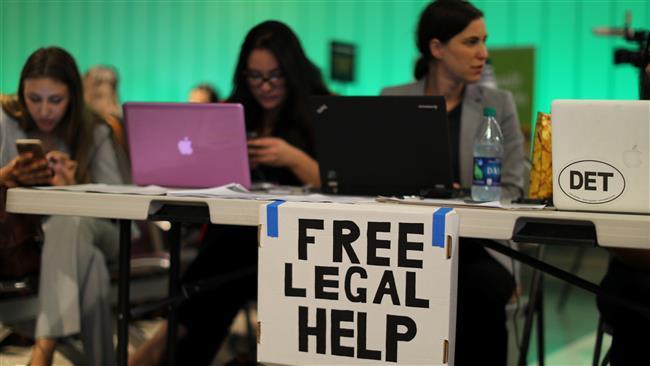
RNA - The American Civil Liberties Union described the measure as extremely restrictive and arbitrary. The group said the ban has been designed “disparage and condemn Muslims.”
It is expected that rights groups will also mount legal challenges to the US travel ban.
A scaled-back version of US President Donald Trump’s controversial travel ban has gone into effect after months of legal wrangling.
The 90-day ban targets citizens from six predominantly Muslim countries, namely Iran, Syria, Yemen, Libya, Somalia and Sudan.
The state of Hawaii has already challenged it, saying the rules do not specify exactly who could be allowed into the US.
Shortly after the measure went into force, protesters gathered in New York City and Los Angeles to condemn it.
Meanwhile, the Iranian foreign minister has denounced the ban in a tweet, calling it a shameful exhibition of blind hostility to all Iranians.
The Supreme Court partially restored a portion of Trump’s executive order on Monday, saying lower courts that had totally blocked the policy went too far in limiting the president’s authority.
The Supreme Court's decision stipulated that citizens of the affected countries with a close relative in the US will potentially be allowed in.
Trump’s initial ban and his second version, blocked by lower courts, also provoked huge protests and created chaos at international airports.
The US president insists his ban is necessary for national security and points to terrorist attacks in Paris, London, Brussels and Berlin as evidence.
However, critics have called Trump's ban discriminatory against Muslims. They say, the White House’s unwavering support for countries such as Saudi Arabia which promotes the ideology of terror groups such as Daesh is indicative of its double standards toward security issues and terrorism.
847/940